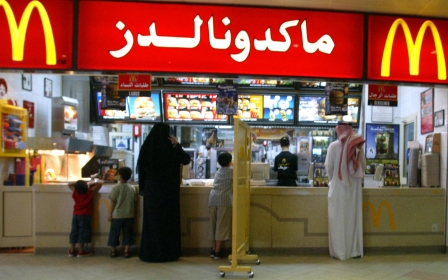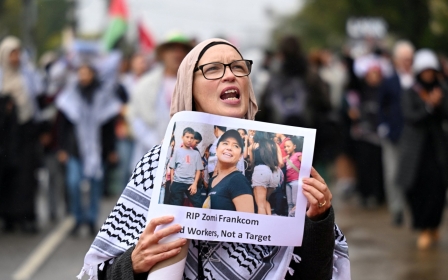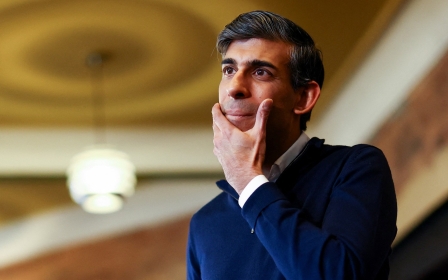War on Gaza: McDonald's buys up all Israeli franchise restaurants after boycott hits sales

McDonald's has bought out all the franchise restaurants in Israel after seeing a sales hit due to boycotts.
Bloomberg reported that McDonald's Corp has decided on the buyout from Alonyal Ltd, taking direct control of the operations several months after its Israel franchise became a focal issue during the early stages of the war on Gaza.
"McDonald's remains committed to the Israeli market and to ensuring a positive employee and customer experience in the market going forward," said Jo Sempels, who leads the McDonald's segment that oversees international markets with licenced restaurants.
According to Calcalist, an Israeli financial news website, the chain intends to search for a new franchise for its Israeli operations a few months after finalising the acquisition. McDonald's announced that the deal with Alonyal hinges on specific prerequisites, and that the transaction is expected to conclude in the next few months.
Over 30 years ago, Alonyal introduced the McDonald's brand to Israel, expanding the business to include 225 locations and over 5,000 staff members, Bloomberg reported.
Local franchise operators run the majority of McDonald's stores around the world and in many ways act as independent businesses.
McDonald's sparked outrage among pro-Palestine activists last October when its Israel franchise announced it was giving free meals to Israeli soldiers in its branches in the country.
This prompted franchise operators in Saudi Arabia, Malaysia and Pakistan to publicly criticise the actions.
In a statement a few days later, Chris Kempczinski, the CEO of McDonald's, said that the company "firmly condemns violence and hate speech" and feels "deeply disturbed by the acts of antisemitism and Islamophobia", Bloomberg reported.
CNBC reported that the company saw fourth-quarter sales slip in the Middle East in the wake of the distribution of free meals to Israeli soldiers. The region accounts for two percent of McDonald's global sales and one percent of its global earnings before interest and taxes.
Middle East Eye propose une couverture et une analyse indépendantes et incomparables du Moyen-Orient, de l’Afrique du Nord et d’autres régions du monde. Pour en savoir plus sur la reprise de ce contenu et les frais qui s’appliquent, veuillez remplir ce formulaire [en anglais]. Pour en savoir plus sur MEE, cliquez ici [en anglais].




